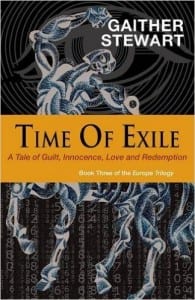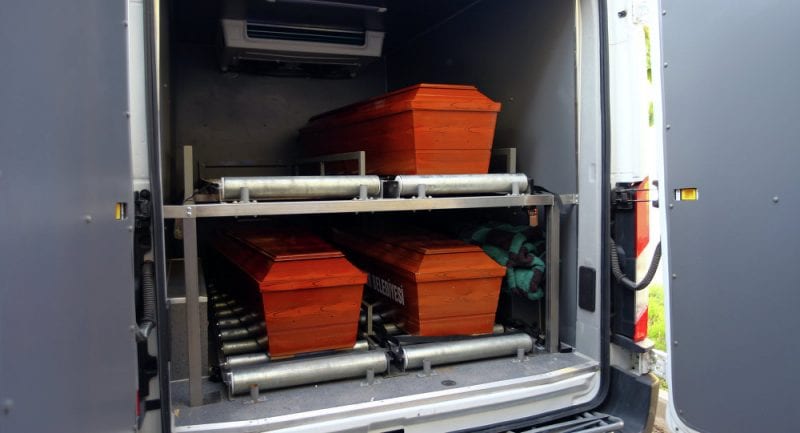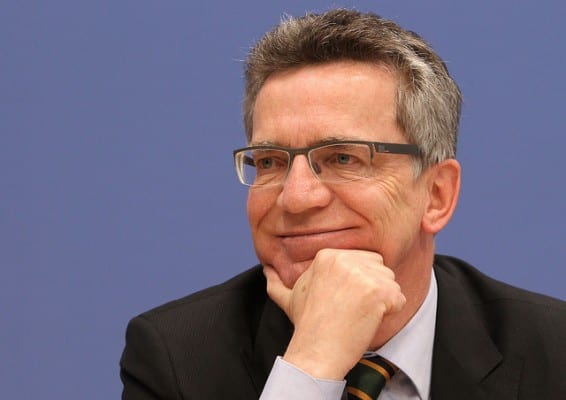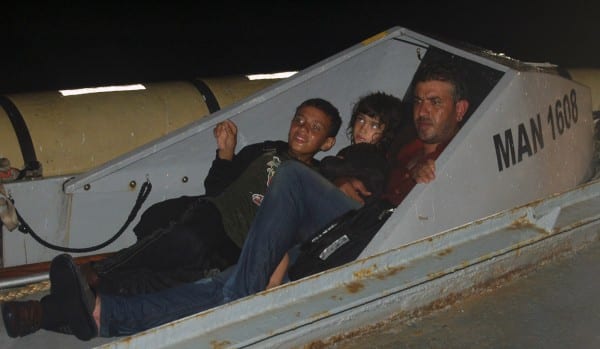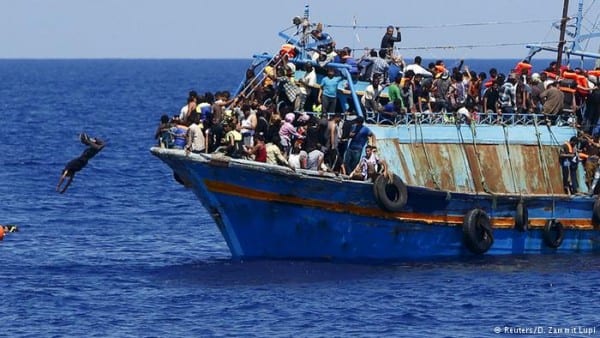EXODUS
![]()
ONE OF HISTORY’S GREATEST MASS MIGRATIONS OF PEOPLES
By Gaither Stewart, European Correspondent
Dateline: Rome, Sept. 6, 2015 | Click on images.
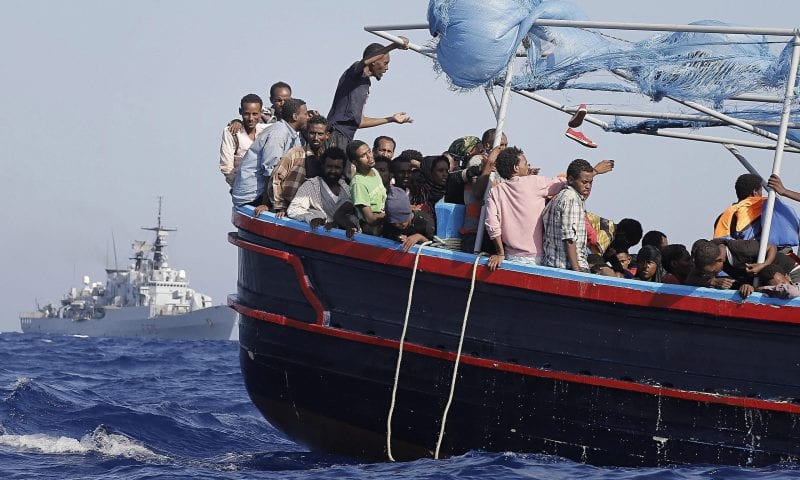
[dropcap]E[/dropcap]urope, the small tail end peninsula of the great Euro-Asian land mass, gears up to receive the brunt of a mass migration of peoples from the South and East fleeing from the wars raging in their worlds. The United Nations Refugee Agency predicts some 800,000 arrivals of “seekers of asylum” in the remaining months of 2015. Estimates of the numbers of people from war-torn sub-Saharan countries like Somalia, South Sudan, Nigeria, Central African Republic and Congo packing their meager belongings for departure stand at five million. It is already underway. And it is a veritable biblical mass movement of peoples … for the most part headed for Europe.
Countless others are streaming out of the war-ravaged Middle East, primarily from Syria, Libya, and Iraq—the trail of failed states spawned by Washington’s meddling, and more—like Yemen—are in the offing.
From the very start the reader of such statistics must make tremendous mental efforts to keep in mind that these hundreds of thousands, these millions of fleeing masses are made up of individuals. Each person has his own hopes (vague) and dreams (shattered). Each has his own horrors of an unliveable past and fears of an uncertain present. But each imagines what the future may offer him elsewhere. Those thousands of escapees now at the bottom of the Mediterranean Sea between Libya and Italy had their dreams too, dreams that vanished with them when their flimsy boat—run by the some 35,000 (according to Europol and reported by Rome’s La Repubblica) traffickers in human beings—sank in nocturnal stormy waters, making a graveyard of dreams at the bottom of that fabled sea.
For some years Europe has known what was happening in the South and East. But then who prepares a Noah’s ark well in advance to face such human tragedies? Who could imagine what is happening before our eyes? But I find it easy to think that the instigators of the wars executing their imperialistic plans of total, world-wide destabilization knew what they were about.
Let’s be clear: the direct, primary, basic, fundamental cause of the migration of peoples of Africa and Middle East is imperialist USA- sponsored, instigated, backed, prompted when not directly conducted wars in Iraq, Syria AND Libya and throughout most of Africa.
Europe for the most part is already in a state of vassalage to the world’s number one capitalist-imperialistic power, the USA. But there are still unruly people and even countries like Serbia who resist. The “invasion” by millions of non-Europeans is the perfect arm for total subjugation of “Old Europe”. That too is happening while America remains quiet except to say it will accept a few thousand Syrian refugees for whom the USA is responsible in the first place. As one Syrian “migrant” said: “Stop the wars and we will stay at home.” The reluctant countries are loyal US followers, Great Britain, and East Europe which wants no truck with such ragged displaced refugees.

Migrants rescued by Greek locals and police after their boat capsized. The Mediterranean is a lot crueler than many expected.
[dropcap]T[/dropcap]he UK is the outsider. Guided by no values whatsoever and by its parasitic vassalage to the USA, the still imperialistic United Kingdom abandons step by step Europe and moves closer to its master while agreeing to accept 15,000 refugees. At the same time Cameron has announced that in October Britain will begin bombing the same ISIS created by its master, USA. Where the bombs will really fall is anyones guess, but if the past is any guide, it will not be primarily atop ISIL’s militants heads. Damascus army better be prepared. Much obliged!
Now, as continental Europe opens its arms and hastily prepares for the millions to pour in across its borders, Germany has stepped forward to head a movement for reception of this year’s predicted 800,000 asylum seekers. Meanwhile, abandoned structures across West Europe—former hospitals, military barracks, schools, etc.—are being readied. The goal is an equal distribution of refugees among European Union member states. As of today this reception is opposed only by the usual extreme right-wing, nationalistic forces such as Le Pen in France and the Northern League in Italy.
Vocabulary used by the press in various major European countries reflects nuances of attitude toward the challenge of the century. Luciana Bohne was right to call the wide use of the word “migrants” as a euphemism for “refugees”. However, I might add that also the word “refugee” as applied to a mass exodus of biblical proportions is misleading. According to country and/or political stance, the European press varies in the use of the words migrants or refugees,. “Political refugees” have the right of asylum. But this widely predicted mass movement of peoples is not made up of only political refugees. Many are fortunate to have close relatives already in Europe and thus hope for the reunification of their families. Others are clearly economic refugees and as such are welcomed in some of Europe’s ageing countries. The leftist GUARDIAN in the UK uses the word “refugee” as do the left-leaning El PAIS in Spain and LIBERATION in France, while France’s center or center-right LE MONDE seems to prefer “migrants”. The liberal LA REPUBBLICA in Italy uses both: “migrants” when applied to members of the mass and “refugees” (profughi) for asylum seekers. Interestingly, the precise German language press uses for all the word Flüchtling (derived from the word for flight and the verb to flee). And German Chancellor Angela Merkel has announced “there are no limits” to the number Germany will accept.

Merkel: A belated welcome for the refugees, and atonement for Germany’s complicity in America’s crimes? German public sentiment—echoed in other EU member states—has begun to force the hand of many politicians at a moment when Europe is traversing one of its most delicate postwar crises.
While practical preparations are underway, other voices are reminding Europeans of the moral question involved, and at the same time public figures and average citizens underline that migration is also big business: from the cost of their flight to their hoped for asylum and for their care while getting there. Also, stamping numbers on the arms of refugees to distinguish one from the other in Hungary calls up bad memories in Europe’s past. Nightmares of the past that for extreme rightists and neo-fascists and neo-nazis have a place also in the present.

The famous Exodus ship, laden with Jewish refugees, and the subject of legend and inevitable comparisons with the current tragedy.
But I think it out of place to speak of Europe’s lack of preparation as “depravity”. European peoples across the peninsula are well aware of the moral side of this historical moment. Many people are helping on an individual basis.
Europe as a construct is NOT indifferent to this great migration of peoples. Nor are Europeans. This apparent conviction by some writers is simply untrue because they are uninformed. Some Europeans have had enough, true. For example, the university city of Leiden in Holland has become to a great extent Moroccan (like many other Dutch cities) with 3 mosques and people dressed Moslem style crowding the streets. Still, Italy is now housing migrants in abandoned hospitals, army barracks, former schools like the one around the corner from my house in Rome. Today, Sunday, 250 private automobiles of Viennese citizens drove to Budapest to carry refugees back to Vienna, while over in Munich people applauded. Strict Germany is in fact willing to take all the Syrians, hampered chiefly by the extreme rightist, if not neo-fascist President of Hungary, Viktor Orban; Hungary (glad to get the refugees out of the main train station in Budapest) is the only country to attempt building a wall to keep migrants out (along with Serbian workers), while the EU has concluded accords to take on the first 200,000 migrants.
In comparison, the USD, a big country, builds walls to keep others out…and maybe in the future to keep people in, considering the millions of Americans now living abroad. Europe is small and crowded. The task of accepting and placing migrants is arduous. But talk of “European indifference” is off base.

The map is now largely obsolete, given the fast-changing circumstances, but still indicative of how these nations have seen the refugee problem.
[dropcap]L[/dropcap]et’s be clear: the direct, primary, basic, fundamental cause of the migration of peoples of Africa and Middle East is imperialist USA- sponsored, instigated, backed, prompted when not directly conducted wars in Iraq, Syria AND Libya and throughout most of Africa. Europeans are doing an enormous job in trying to deal with the not unexpected situation. But this mass exodus from war and misery is exceptional, something like millions of Mexicans suddenly forcing their way into the USA in one huge wave. Refugees are now camped all over Italy, nearly in my backyard, in the backyards of many. Holier- than- thou talk of European “depravity” is not enlightening and, I fear, based on a lack of cold information.
Yet not long ago imperialist Europe was the very personification of depravity in two world wars that cost the lives of some 100 million persons and untold misery. I still remember when refugee camps dotted Germany in the 1960s. Europe—nationalistic, capitalistic, greedy—is however not yet again imperialist. Europe that still boasts of the last 70 years free of war, forgets or hardly noticed at the time that it supported a war against another European country, Serbia, the year 2000. In my opinion, the European Union, bureaucratic, rich, staffed largely by unelected, self-named officials, is a failure; it has never come even close to living up to the dream of its original founders.
One might hazard that Europe today stands before a last chance test: how it handles the misery described here will be the measure of its vaunted morality.
 Senior Editor GAITHER STEWART, based in Rome, serves—inter alia—as our European correspondent. A veteran journalist and essayist on a broad palette of topics from culture to history and politics, he is also the author of the Europe Trilogy, celebrated spy thrillers whose latest volume, Time of Exile, was just published by Punto Press.
Senior Editor GAITHER STEWART, based in Rome, serves—inter alia—as our European correspondent. A veteran journalist and essayist on a broad palette of topics from culture to history and politics, he is also the author of the Europe Trilogy, celebrated spy thrillers whose latest volume, Time of Exile, was just published by Punto Press.
BUY IT TODAY! PUNTO PRESS IS PART OF THE GREANVILLE POST FAMILY OF ORGS DEVOTED TO COUNTER-PROPAGANDA.
Nauseated by the
vile corporate media?
Had enough of their lies, escapism,
omissions and relentless manipulation?
Send a donation to
The Greanville Post–or
But be sure to support YOUR media.
If you don’t, who will?


